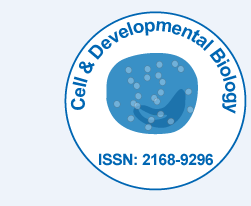
செல் & வளர்ச்சி உயிரியல்
திறந்த அணுகல்
ஐ.எஸ்.எஸ்.என்: 2168-9296

ஐ.எஸ்.எஸ்.என்: 2168-9296
Yin-Ci Xi and Da-Yong Lu
Cancer is one of the high-mortality diseases, which causes the annual deaths listing among the top 5 mortality in almost all countries. Unlike cardiovascular diseases, the treatment beneficiary for cancers especially for epithelial carcinoma has been improving slightly over the past several decades [1-3]. Neoplasm metastasis is one of the fatalist characters responsible for these unsatisfactory of therapies and more than 60% cancer deaths and can be hopefully only controlled by drugs. Paradoxically to our efforts and expectations, except some antibodies, no obvious improvements and therapeutic benefits by conventional antimetastatic drugs (usually antivascular agents or MMPs inhibitors) have been achieved until now. Therapeutic benefits in late-staged or aged cancer patients are especially poor and useless [1-3]. Clinical anticancer drug therapies currently in use have been mainly focusing on primary tumor growth rather than specifically targeting pathologic courses of metastases relevantly. Finding important drugs targeting specifically to neoplasm metastases is essential and indispensable [4-7]. It nevertheless needs changing our focus from targeting vascularity and MMPs into more metastatic-relating molecules.